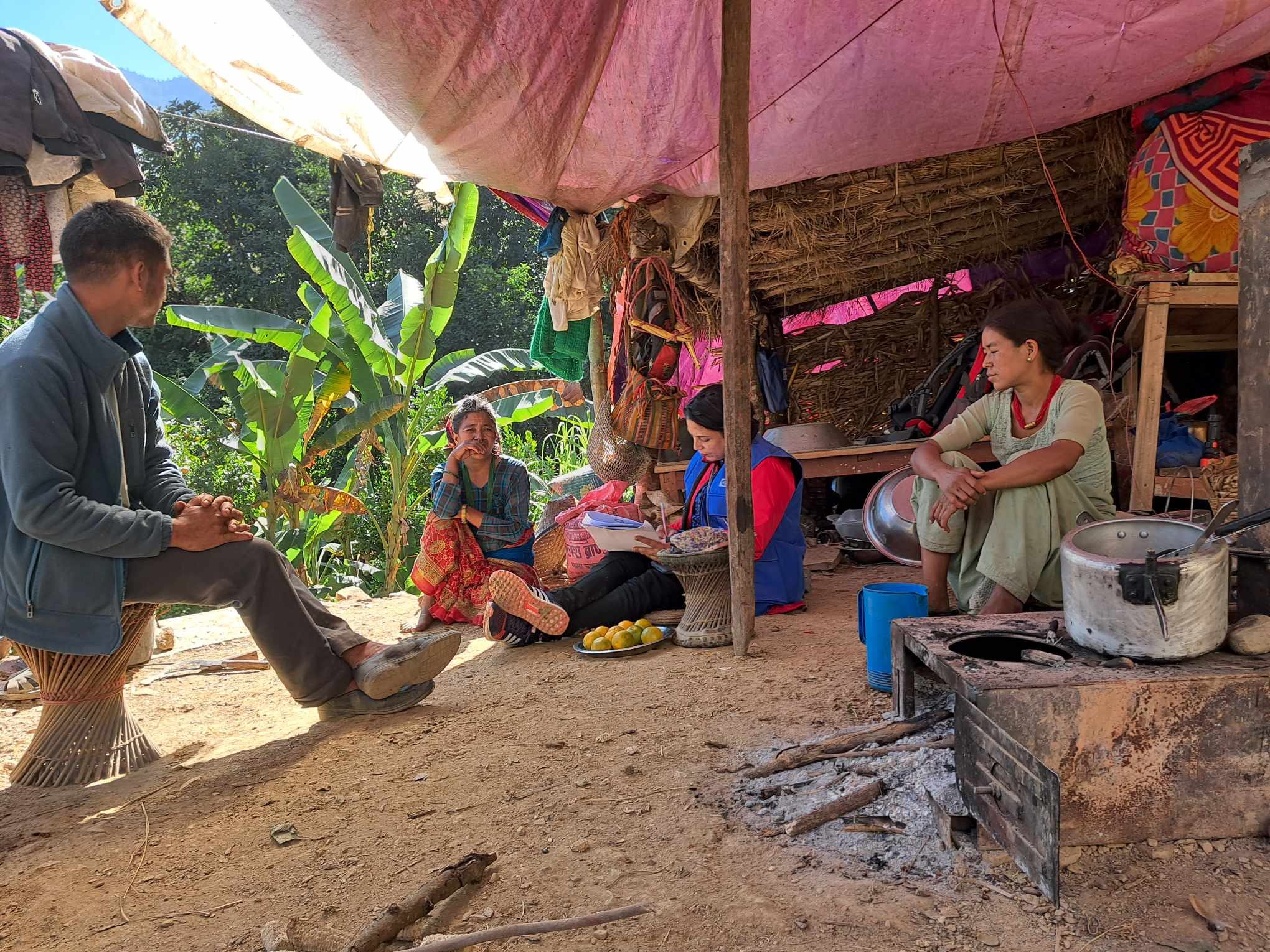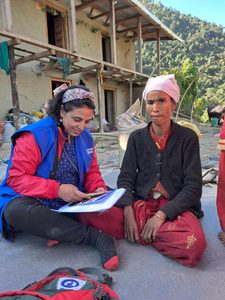Kabita: A lifelong commitment to humanitarian work
This World Humanitarian Day, we honour Kabita Guragain for her vital role in supporting communities through her dedicated work in logistics and disaster response.

For over 20 years, Kabita has been a vital force within Plan International Nepal, embodying the spirit of humanitarian service. Kabita’s journey began as a Human Resource (HR) Administrator in 2015, but her dedication and resilience quickly propelled her into the heart of the organisation’s emergency response efforts.
2015 mega earthquake
“In times of crisis, every minute counts. My role was to ensure our team was ready and supported so we could respond swiftly and effectively.”
During the devastating 2015 earthquake in Nepal, Kabita’s role became crucial. She was responsible for maintaining the staff database, reviewing job descriptions, and recruiting humanitarian workers urgently needed in the disaster response. Kabita ensured that new recruits were swiftly deployed to the affected areas, and she took care of their well-being, managing a roster to replace staff who fell ill or were unable to continue. Her quick thinking and effective communication were essential in keeping the response team fully operational.
Kabita was also involved in the emergency response procurement panel, representing the HR department. She played a key role in assessing and selecting vendors, ensuring they met procedural standards, and providing high-quality products for relief efforts. For Kabita, being a humanitarian worker brings immense satisfaction. She believes she was born to be a social worker, and responding to crises is a vital aspect of that calling.
“There are days when I work over 14 hours, staying in constant touch with my team in the field and keeping up with the latest information—because every detail matters when lives are at stake.”
“In times of crisis, every minute counts. My role was to ensure our team was ready and supported so we could respond swiftly and effectively.”
Kabita
Psychosocial support and community care
“People in need require someone who listens without judgement. Providing comfort and care is just as important as delivering physical aid.”
In the aftermath of the 2015 earthquake, Plan International provided its staff with psychosocial counselling training, recognising the mental health challenges faced by affected communities. Fifteen days after the earthquake, Kabita was deployed to Makwanpur and Sindhuli districts to offer psychosocial support. She emphasised the importance of listening patiently to those in need without judgement. Anxiety was widespread, especially among children and adolescents, exacerbated by ongoing aftershocks.
Hearing people’s stories often brought tears to my eyes, but I reminded myself that my strength was needed to help them heal.”
She continues, “There were moments when their pain felt overwhelming, but my commitment to serving them gave me the strength to keep going.”
To address this, Kabita and her colleagues used fun and entertainment in child-friendly spaces and transitional learning centres to support the mental health of children and adolescents. Her compassionate approach helped many to manage their stress and begin the healing process.
“Using games, music, and dance to help children overcome their stress brings so much joy. Seeing their smiles reminds me of my own son, and it makes every effort worthwhile.”

“Hearing people’s stories often brought tears to my eyes, but I reminded myself that my strength was needed to help them heal.”
Kabita
Rapid gender assessment
Kabita’s commitment to humanitarian work was further demonstrated during her recent deployment to Jajarkot and Rukum West following an earthquake. Tasked with conducting a Rapid Gender Assessment, she visited the most vulnerable communities, collecting crucial data through door-to-door meetings with those most affected. Despite the lack of internet, light, and communication for several days, Kabita remained focused on her mission, ensuring that the programme team had the information needed to prepare an effective response plan.
“I felt a wave of panic when the internet and electricity went out—it made me realise just how dependent we’ve become on gadgets and social media.”
During her visit, Kabita observed that many men in these communities were migrant workers, leaving women to manage households. This dynamic placed a heavy burden on women, who had to care for their families, secure safety and security during the disaster, walk long distances for relief materials, and set up temporary shelters. Kabita’s insights were instrumental in shaping a women-centric response plan, which included cash-for-work opportunities that utilised women’s skills and provided psychosocial counselling to households. The relief materials were tailored to the needs of elderly people, women, adolescent girls, and children.
“Understanding the unique challenges faced by women and children during a disaster is crucial. Our response must be tailored to their needs, ensuring they are not left behind.”
A lifelong commitment
Kabita Guragain’s career highlights her strong dedication to humanitarian work. Starting as an HR Administrator during the 2015 earthquake, she now works in Logistics Coordination and disaster response. Her hard work brings immediate help and long-term support to those in need. For Kabita, being a humanitarian is more than just a job—it’s a true calling.

